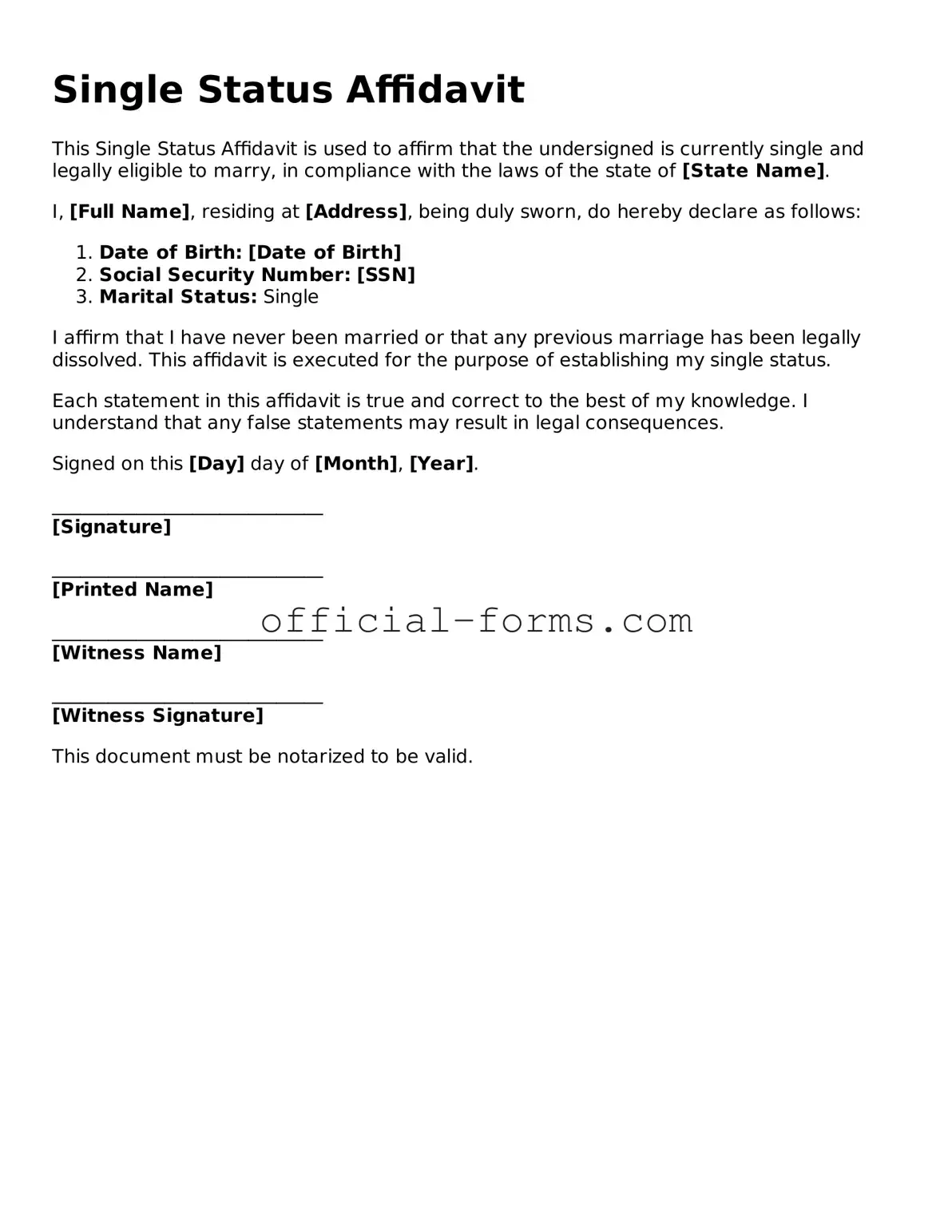Attorney-Verified Single Status Affidavit Template
The Single Status Affidavit is a legal document that confirms an individual's unmarried status, often required for marriage in a foreign country. This form serves to verify that the signer is free to marry, ensuring compliance with local laws and regulations. Understanding its purpose and requirements is crucial for anyone planning to tie the knot abroad.
Open My Single Status Affidavit Now

Attorney-Verified Single Status Affidavit Template
Open My Single Status Affidavit Now
Don’t leave your form incomplete
Finish Single Status Affidavit online quickly from start to download.
Open My Single Status Affidavit Now
or
➤ PDF
